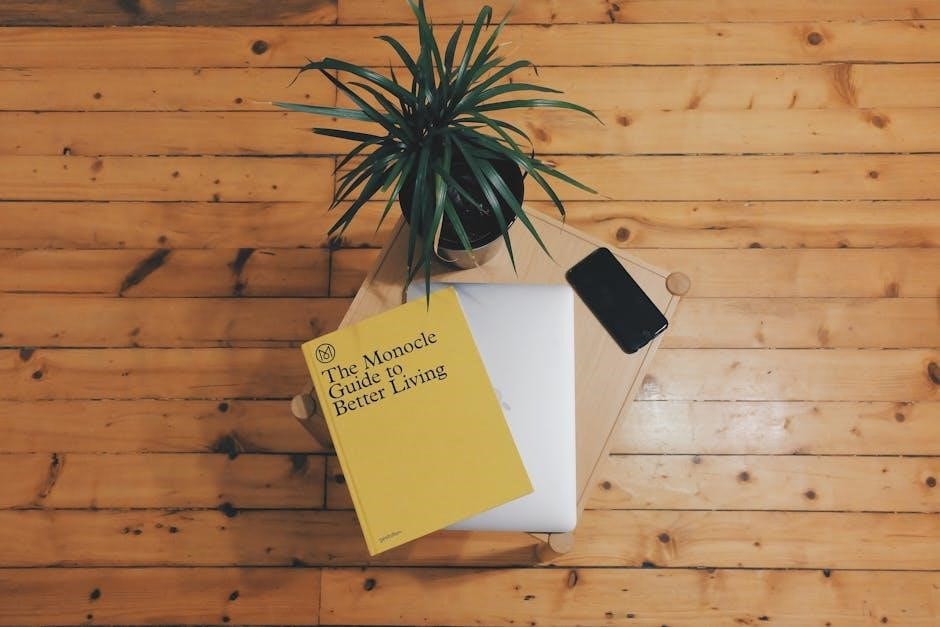Sincerely F. Scott Fitzgerald Viewing Guide: Article Plan
This comprehensive guide delves into the BBC documentary‚ featuring twenty-one questions designed to assess comprehension. It includes an answer key and resources for extended study‚
enhancing appreciation for Fitzgerald’s enduring literary impact.
The guide explores how Scott and Zelda crafted a public persona through flamboyant displays – dancing‚ kissing‚ and storytelling – effectively fabricating their “Jazz Age” legend.
Furthermore‚ it examines Fitzgerald’s untimely death at 44‚ his playful deception at The Garden of Allah‚ and the isolating nature of writing in Hollywood.
F. Scott Fitzgerald‚ a defining voice of the Jazz Age‚ remains a captivating figure in American literature. His life‚ often mirroring the themes explored in his works – wealth‚ class‚ and the elusive American Dream – continues to fascinate audiences today. This documentary‚ “Sincerely‚ F. Scott Fitzgerald‚” offers a compelling exploration of his journey‚ moving beyond the glamorous façade to reveal the complexities of the man and his creative process.
The documentary‚ readily available on platforms like YouTube‚ serves as an excellent pre-reading companion to his iconic novel‚ The Great Gatsby. It provides crucial context‚ illuminating the personal experiences and societal influences that shaped Fitzgerald’s writing. However‚ be aware that answers to a previous viewing guide iteration have been publicly shared online‚ presenting a potential challenge for assessment.
This viewing guide is designed to deepen your understanding of Fitzgerald’s life‚ work‚ and legacy. It encourages critical thinking through a series of targeted questions‚ prompting viewers to analyze key themes‚ character dynamics‚ and the historical context of his writing. Prepare to delve into the world of Scott and Zelda Fitzgerald‚ uncovering the truths behind the legend and appreciating the enduring power of his literary contributions.
Ultimately‚ the goal is to foster a richer appreciation for Fitzgerald’s impact on 20th-century literature and his continued relevance in contemporary society.
Early Life & Rejection (Early Twenties)

Fitzgerald’s early twenties were marked by significant setbacks and a series of disheartening rejections‚ experiences that profoundly shaped his outlook and fueled his ambition. Initially‚ his manuscript for what would become This Side of Paradise faced considerable resistance from publishers. He endured numerous dismissals‚ highlighting the challenges faced by aspiring writers seeking recognition in a competitive literary landscape.

The documentary sheds light on the emotional toll these rejections took on the young Fitzgerald‚ revealing his anxieties and self-doubt. These early failures weren’t simply professional obstacles; they were deeply personal blows that tested his resolve and forced him to confront the precarious nature of artistic success. It’s crucial to understand this period as formative‚ influencing the themes of aspiration and disillusionment that permeate his later work.
The sting of rejection motivated Fitzgerald to refine his craft and persevere despite the odds. He relentlessly pursued publication‚ eventually securing a deal that launched his career. This early struggle underscores the importance of resilience and the often-arduous path to achieving one’s creative goals‚ a narrative powerfully conveyed within the documentary’s exploration of his formative years.
Understanding these initial hurdles provides valuable insight into the man behind the masterpieces.
Fitzgerald’s Anxieties Regarding His Work
The documentary reveals a deeply insecure artist beneath the glamorous façade‚ highlighting Fitzgerald’s pervasive anxieties surrounding his writing and its reception; He constantly questioned the merit of his work‚ fearing it lacked substance or originality. This self-doubt wasn’t merely a fleeting concern; it was a chronic condition that plagued him throughout his career.
Fitzgerald worried intensely about living up to the expectations created by his early success with This Side of Paradise; He feared being perceived as a one-hit wonder and struggled to replicate that initial acclaim. This pressure fueled a cycle of self-criticism and revision‚ often leading to prolonged periods of creative blockage.
The film illustrates how Fitzgerald’s anxieties were exacerbated by his desire for financial security and social acceptance. He sought validation through literary success‚ believing it would grant him access to the upper echelons of society. However‚ this pursuit of external approval only intensified his internal struggles‚ creating a constant tension between artistic integrity and commercial demands.
His fears were a significant component of his creative process and personal life.
The Fitzgeralds as a “Jazz Age Power Couple” ⸺ Performance of Life
The documentary vividly portrays Scott and Zelda Fitzgerald not as simply a couple‚ but as carefully constructed performers enacting a public spectacle. They deliberately cultivated an image of glamorous abandon‚ becoming synonymous with the excesses and freedoms of the Jazz Age. Their life was‚ in many ways‚ a performance designed to captivate and intrigue.
They were frequently seen dancing‚ kissing‚ and drinking at lavish parties‚ intentionally drawing attention to themselves. This wasn’t spontaneous behavior‚ but rather a calculated effort to create a legend around their names. They were inseparable‚ constantly telling stories – often embellished or entirely fabricated – about each other‚ further blurring the lines between reality and fiction.
The film emphasizes their mutual participation in this performance. Zelda wasn’t merely a muse or a follower; she was an active collaborator in crafting their shared persona. They fed off each other’s energy‚ constantly pushing the boundaries of social convention and challenging societal norms. This carefully curated image became their brand‚ solidifying their status as icons of the era.
Their public life was a deliberate act of self-creation.
Symbolism of Scott & Zelda: What They Represented
Scott and Zelda Fitzgerald transcended their individual identities to become potent symbols of the Roaring Twenties – embodying both its exhilarating promise and its underlying fragility. They represented the era’s newfound freedoms‚ particularly for women‚ but also its reckless pursuit of pleasure and the disillusionment that followed.
Zelda‚ in particular‚ symbolized the “flapper” – a rejection of Victorian constraints and an embrace of modernity. Her vibrant personality and unconventional behavior challenged traditional gender roles‚ making her a figure of both fascination and controversy. Scott‚ as a writer‚ captured the spirit of the age‚ but also foreshadowed its inevitable decline.
Together‚ they represented the American Dream’s allure and its potential for corruption. Their glamorous lifestyle masked deep-seated anxieties and personal struggles‚ mirroring the broader societal tensions of the time. They became cautionary figures‚ illustrating the dangers of excess and the elusive nature of happiness. Their story served as a reflection of a nation grappling with rapid change and moral uncertainty.
Ultimately‚ they symbolized the complexities of the Jazz Age.
The Great American Dreamer Documentary Overview
“The Great American Dreamer‚” originally aired on A&E‚ serves as an excellent pre-reading resource for F. Scott Fitzgerald’s The Great Gatsby. The documentary meticulously explores Fitzgerald’s life‚ tracing his journey from aspiring writer to literary icon‚ and ultimately‚ to a tragic end. It utilizes archival footage‚ photographs‚ and expert commentary to paint a comprehensive portrait of the man behind the masterpieces.
The film delves into Fitzgerald’s personal struggles‚ including his complex relationship with Zelda‚ his battles with alcoholism‚ and his anxieties surrounding his work. It also examines the societal context of the Jazz Age‚ highlighting the cultural shifts and economic prosperity that shaped Fitzgerald’s writing. A key focus is the exploration of his relentless pursuit of the American Dream and its inherent contradictions.

However‚ it’s worth noting that answers to the original viewing guide are unfortunately available on YouTube‚ presenting a challenge for educators. Despite this‚ the documentary remains a valuable tool for understanding Fitzgerald’s life and legacy‚ offering a deeper appreciation for his literary achievements.

Key Themes Explored in “Sincerely‚ F. Scott Fitzgerald”
“Sincerely‚ F. Scott Fitzgerald” profoundly investigates several recurring themes central to both his life and work. A primary focus is the elusive nature of the American Dream‚ showcasing Fitzgerald’s fascination with wealth‚ social status‚ and the pursuit of happiness‚ alongside its inherent disillusionment. The documentary also examines the destructive power of idealism‚ particularly as manifested in Fitzgerald’s relationship with Zelda.
Furthermore‚ the film explores the theme of performance and the construction of identity‚ highlighting how Fitzgerald and Zelda deliberately cultivated a public persona‚ blurring the lines between reality and fabrication. It delves into the complexities of love‚ loss‚ and the corrosive effects of societal pressures. The documentary also touches upon the isolating experience of artistic creation and the challenges faced by writers in a rapidly changing world.

Ultimately‚ the film presents Fitzgerald as a deeply flawed yet profoundly insightful observer of the human condition‚ grappling with universal themes of ambition‚ desire‚ and the search for meaning.
Fitzgerald’s Personality & Attitude
The documentary portrays F. Scott Fitzgerald as a complex and often contradictory figure. He exhibited a charming and charismatic exterior‚ frequently engaging in flamboyant displays and cultivating a persona of sophistication. However‚ beneath the surface lay a deep-seated insecurity and anxiety‚ fueled by his relentless pursuit of literary recognition and social acceptance.
Fitzgerald possessed a playful and mischievous streak‚ demonstrated by his deliberate deception while staying at The Garden of Allah hotel‚ adopting the guise of a Russian prince. This suggests a desire to escape the constraints of his own identity and experiment with different roles. He also displayed a tendency towards self-destructive behavior‚ particularly regarding alcohol consumption.

Despite his flaws‚ Fitzgerald was a deeply sensitive and perceptive individual‚ acutely aware of the societal pressures and moral ambiguities of his time. His attitude was often marked by a melancholic awareness of the fleeting nature of happiness and the inevitability of loss.
Fitzgerald’s Writing Style & Influences
Fitzgerald’s writing style is characterized by its lyrical prose‚ evocative imagery‚ and keen observations of human psychology. He masterfully captured the spirit of the Jazz Age‚ portraying both its glamour and its underlying disillusionment. His sentences are often elegant and flowing‚ yet precise and impactful‚ creating a distinctive and memorable voice.
The documentary doesn’t explicitly detail specific literary influences‚ but it’s widely understood that Fitzgerald drew inspiration from authors like Henry James and Edith Wharton. He admired their ability to depict the complexities of social class and the inner lives of their characters. Furthermore‚ his work reflects the influence of Romantic poets‚ evident in his lyrical descriptions of nature and his exploration of themes like love and loss.
Fitzgerald’s experiences in Hollywood‚ while isolating‚ likely influenced his narrative techniques‚ potentially contributing to his understanding of performance and illusion. His style is marked by a subtle irony and a willingness to expose the contradictions of the American Dream.
The Impact of Zelda Fitzgerald on Scott’s Life & Work
Zelda Fitzgerald was far more than simply Scott’s wife; she was a significant‚ albeit complex‚ influence on his life and creative output. The documentary highlights their dynamic as a “Jazz Age power couple‚” where they actively constructed and performed a public persona together. Their relationship was characterized by both intense love and destructive conflict‚ profoundly shaping Scott’s emotional landscape.
Zelda’s own artistic ambitions – she was a talented painter and writer – often clashed with societal expectations and Scott’s success; This tension fueled both their creativity and their struggles. She served as a muse for some of his characters‚ notably Daisy Buchanan in The Great Gatsby‚ embodying the allure and fragility of the era’s women.

However‚ Zelda’s mental health challenges and institutionalization deeply impacted Scott‚ adding layers of guilt and sorrow to his life. Their story is a tragic illustration of the constraints placed upon women artists and the destructive consequences of societal pressures.
Hollywood & the Writer’s Isolation
The documentary reveals a stark contrast between the vibrant “Jazz Age” and the isolating experience Fitzgerald encountered in Hollywood. Seeking financial stability‚ he moved to California to work as a screenwriter‚ a world vastly different from the literary circles he once inhabited. However‚ the studio system proved stifling for a writer of his caliber.
Hollywood demanded conformity and commercial appeal‚ often clashing with Fitzgerald’s artistic sensibilities. The work was fragmented and lacked the creative control he was accustomed to‚ leading to frustration and a sense of disillusionment. This environment fostered a profound sense of loneliness and alienation.

The documentary notes that writers in Hollywood generally worked in isolation‚ disconnected from the collaborative spirit of the literary community. Fitzgerald’s attempt to inject humor and personality into his surroundings – like pretending to be a Russian prince at The Garden of Allah hotel – was a coping mechanism against this isolation‚ a desperate attempt to reclaim agency.
Fitzgerald’s Persona & “The Garden of Allah” Incident
The documentary highlights Fitzgerald’s complex persona‚ a carefully constructed image often at odds with his inner turmoil. He cultivated a reputation for extravagance and wit‚ mirroring the excesses of the Jazz Age‚ yet beneath the surface lay anxieties and insecurities. This duality is vividly illustrated by the incident at The Garden of Allah hotel in Hollywood.
While residing at the hotel‚ Fitzgerald playfully pretended to be a Russian prince‚ a whimsical act of self-deception and a desperate attempt to escape the pressures of his life. This charade wasn’t malicious‚ but rather a coping mechanism‚ a way to momentarily transcend his struggles with writing and personal demons.
The incident reveals Fitzgerald’s penchant for performance and his desire to create a captivating narrative‚ even in his own life. It underscores his awareness of the constructed nature of identity and the allure of illusion. Ultimately‚ the “Russian prince” episode serves as a poignant example of Fitzgerald’s multifaceted personality and his yearning for a different reality.
The Tragic End: Fitzgerald’s Untimely Death

The documentary poignantly details Fitzgerald’s death at the relatively young age of 44‚ succumbing to a fatal heart attack. This event shocked many‚ as he still possessed considerable potential and a vibrant creative spirit. His passing marked a definitive end to a life characterized by both brilliance and profound struggle.
The narrative emphasizes the irony of his premature demise‚ occurring amidst a period of renewed hope for his career. He was working on The Last Tycoon at the time‚ a novel that hinted at a potential artistic resurgence. However‚ years of excessive drinking‚ financial worries‚ and emotional strain had taken a significant toll on his health.
Fitzgerald’s death serves as a stark reminder of the destructive consequences of unchecked ambition and personal demons. It underscores the fragility of life and the enduring power of tragedy. His legacy‚ however‚ continues to resonate‚ solidifying his place as a literary icon despite his untimely end.
Analyzing Fitzgerald’s Legacy in 20th-Century Literature
The documentary highlights Fitzgerald’s enduring impact on 20th-century literature‚ establishing him as a defining voice of the Jazz Age and a chronicler of the American Dream. His works‚ particularly The Great Gatsby‚ continue to be widely read‚ studied‚ and adapted‚ demonstrating their timeless relevance.
Fitzgerald’s innovative writing style‚ characterized by lyrical prose‚ vivid imagery‚ and insightful social commentary‚ profoundly influenced subsequent generations of writers. He masterfully captured the disillusionment and moral ambiguity of a rapidly changing society‚ themes that resonate even today.
The viewing guide encourages viewers to consider how Fitzgerald’s personal experiences – his struggles with wealth‚ love‚ and ambition – informed his artistic vision. His exploration of class‚ identity‚ and the pursuit of happiness remains remarkably prescient. Ultimately‚ Fitzgerald’s legacy lies in his ability to articulate the complexities of the human condition with unparalleled grace and eloquence.
Resources for Further Study & Comprehension
To deepen understanding of F. Scott Fitzgerald’s life and work‚ several resources are readily available. The BBC documentary “Sincerely‚ F. Scott Fitzgerald‚” accessible on YouTube‚ provides a compelling biographical overview and serves as an excellent starting point.
Numerous scholarly articles and critical analyses explore Fitzgerald’s novels and short stories‚ offering diverse interpretations of his themes and stylistic innovations. Biographies by renowned authors provide detailed accounts of his personal life‚ including his complex relationship with Zelda.
Online literary databases and archives offer access to primary source materials‚ such as letters and manuscripts‚ allowing for independent research. The viewing guide itself‚ with its included answer key‚ functions as a valuable tool for self-assessment and comprehension. Furthermore‚ exploring the historical context of the Jazz Age enhances appreciation for Fitzgerald’s cultural milieu. These resources collectively contribute to a richer and more nuanced understanding of his literary legacy.
Viewing Guide Question Recap & Answer Key Availability
This viewing guide comprises twenty-one thoughtfully crafted questions designed to assess comprehension of the BBC documentary‚ “Sincerely‚ F. Scott Fitzgerald.” The questions cover key aspects of Fitzgerald’s life‚ anxieties‚ relationships‚ and literary style‚ prompting viewers to engage critically with the material presented.
Topics addressed include his early rejections‚ the dynamic between Scott and Zelda‚ their performance of a “Jazz Age power couple” persona‚ and the symbolism they embodied. The guide also delves into Fitzgerald’s personality‚ writing influences‚ experiences in Hollywood‚ and ultimately‚ his tragic demise.
Crucially‚ a complete and detailed answer key is provided alongside the questions‚ facilitating self-assessment and ensuring accurate understanding. However‚ please be aware that answers may be publicly available on platforms like YouTube‚ requiring educators to potentially adapt or supplement the guide. This resource aims to deepen appreciation for Fitzgerald’s enduring legacy in 20th-century literature.